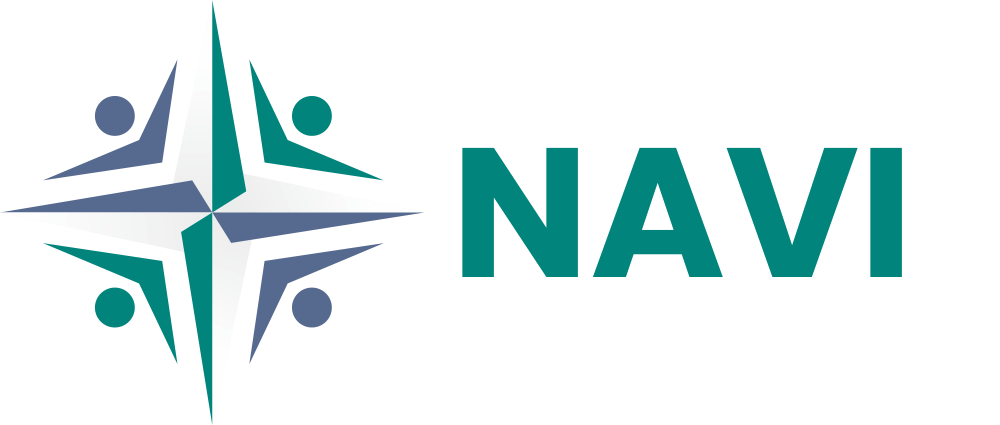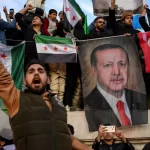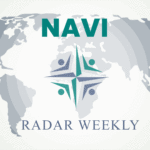Subscribe to NAVI Radar Weekly
Focus Point: Regional Security- Transatlantic Security/NATO
Trump wants 5% Nato defence spending target, Europe told | FT
By Lucy Fisher, Henry Foy and Felicia Schwartz | 20.12. 2024 | Subscription needed
US president-elect’s closest foreign policy aides indicate he will continue arming Ukraine while pursuing end to war
Donald Trump’s team has told European officials that the incoming US president will demand NATO member states increase defence spending to 5 per cent of GDP, but plans to continue supplying military aid to Ukraine.
The US president-elect’s closest foreign policy aides shared his intentions in discussions with senior European officials this month, according to people familiar with the talks, as he firms up his policies towards Europe and Russia’s invasion of Ukraine.
During his White House campaign, Trump vowed to cut off aid to Ukraine, force Kyiv into immediate peace talks, and leave Nato allies undefended if they failed to spend enough on defence — spooking European capitals. But in a boost for allies deeply concerned over their ability to support and protect Ukraine without Washington’s backing, Trump now intends to maintain US military supplies to Kyiv after his inauguration, according to three other people briefed on the discussions with western officials.
At the same time Trump is to demand NATO more than double its 2 per cent spending target — which only 23 of the alliance’s 32 members currently meet — to 5 per cent, two people briefed on the conversations said. Read more…
Focus Point: Regional Security- Middle East
Syria: Germany cautions Turkey against wider Kurdish fight | DW
By DW |23.12.2024
German Foreign Minister Annalena Baerbock said a Turkey-Kurdish conflict “must not happen” and that only the so-called “Islamic State” stood to gain.
Germany has cautioned Turkey against using the ousting of Bashar Assad’s regime to strike at Kurdish forces in Syria, saying such a conflict would have broader security implications.
Foreign Minister Annalena Baerbock said the so-called ”Islamic State” (IS) would be the only ones who stood to gain from Turkey attacking Kurds in Syria. Kurdish forces have played an integral role in defeating IS.
On Friday, Turkish President Recep Tayyip Erdogan said it was time to destroy “terrorist” groups that posed a threat to Syria’s survival, namely the IS jihadis and Kurdish fighters.
What Baerbock has said : “This must not happen,” Baerbock said Monday on Germany’s Deutschlandfunk public radio.
“It would help no one if the Islamic State terrorists were the ones to benefit from a conflict with the Kurds. This would pose a security threat to Syria, Turkey and Europe.”
Last week, Baerbock highlighted the role Kurds played in the fight against IS and said Turkey had a responsibility to preserve Syria’s territorial integrity.
Turkey has maintained strong ties with Syria’s new leaders and has carried out repeated military operations against the Kurdish YPG militia in northern Syria, which it sees as an offshoot of the banned Kurdish Workers’ Party (PKK). Read more…
Focus Point: Regional Security- Africa
Africa: Supporting peace after guns have fallen silent | DW
By Martina Schwikowski | 23.12. 2024
Traditional peacekeeping is not working in Africa: Resolving existing conflicts requires revised diagnoses that are not shaped by particular interests or ideology, experts say.
Research on peacebuilding over the last 20 years has shown there has been great understanding of the mutually reinforcing relationship between peace and development, said Vines.
African peace processes are as diverse as its crisis and conflicts.
“Therefore, rather than following a single template they are driven by politics and circumstance, shaped by ad-hoc coalitions more frequently than adhering to formal conflict resolution structures,” he told DW. “This makes harmonizing efforts more difficult and crucial.” Read more…
Focus Point: Regional Security- Africa
France’s military is being ousted from more African countries | Defense News
By Monika Pronczuk and Sylvie Corbet | The Associated Press | 25.12.2024
The government of Chad, considered France’s most stable and loyal partner in Africa, announced on its Independence Day it was ending defense cooperation to redefine its sovereignty.
And in an interview published hours later by Le Monde, Senegal’s new president said it was “obvious” that soon French soldiers wouldn’t be on Senegalese soil.
“Just because the French have been here since the slavery period doesn’t mean it’s impossible to do otherwise,” President Bassirou Diomaye Faye said. Read more…
Focus Point: Security and Defense Policy- Russia-Ukraine War
Putin Chose Ukraine Over Syria | FP
By Alexander Baunov | 26.12.2024 |Subscription needed
Rulers who hope for Russia’s help may be unpleasantly surprised by how quickly it seeks to establish contacts with Syria’s new leaders. Even before Assad’s departure, Russian television stopped calling Hayat Tahrir al-Sham a terrorist organization. More recently, the head of the Chechen Republic, Ramzan Kadyrov, clearly with Kremlin approval, has proposed removing the “terrorist” label from Hayat Tahrir al-Sham and the government has allowed the Syrian embassy in Moscow to raise the rebel flag. Now, Moscow is establishing direct contact with the new Syrian government, trying to win its favor by emphasizing that, despite previous attempts to prop up a secular leader against religious fundamentalists, it sees itself as a global bastion of religious conservatism.
Putin has tried to present Russia’s failure in Syria as a victory, claiming that Russia had prevented the creation of a “terrorist enclave” in the country. But Assad’s fall (and Russia’s indifference to the collapse of his regime) suggests that concern for Syria or any other client state has been subjugated by Putin to his overriding focus on dealing Ukraine a decisive defeat.
At the same time, Putin’s decision to prioritize Ukraine should not be taken for a complete abandonment of Russian ambitions outside its immediate neighborhood. Rather, the loss of Syria has simply raised the stakes of the war in Ukraine. In Putin’s schema, Ukraine has become a tipping point in a global struggle between the Western elite and a new, Russian-led order: once Ukraine falls, Russia hopes to take Georgia and whatever other territory it desires, and to once again sell itself as a strong patron to countries around the world. In the meantime, however, Moscow’s promises will ring hollow.Read more…
Focus Point: Regional Security- Transatlantic Security/NATO
Finland Seizes Tanker Linked to Russia After More Undersea Baltic Cables Cut | WSJ
By Bojan Pancevski | 26.12.2024 | Subscription needed
Finnish leaders urge further NATO protection against alleged sabotage of critical infrastructure by Moscow.
Finland detained a tanker carrying Russian oil on the suspicion that it had severed undersea power and data cables on Christmas Day, prompting calls for NATO to defend against alleged sabotage of critical European infrastructure by Moscow. Read more…
Focus Point: Emerging Technologies & Data- Cyber Security
How did misinformation and foreign interference shape the ‘super year’ of elections? | Euronews
By Mated Cwyn Jones | 27.12.2024
An estimated 3.7 billion people in more than 70 countries across the world were eligible to vote in 2024 according to the UN, in what has been described as a landmark “super year” of elections.
High-stakes votes took place in populous nations such as the US, India and Indonesia, and authoritarian and autocratic states including Belarus, Iran and Russia. The European election in June saw some 182 million people cast their ballots across 27 countries in one of the world’s biggest cross-border votes.
But many of those ballots shone a harsh light on the increasingly disruptive impact of misinformation, generative AI and foreign interference on electoral processes.
Meta, which owns social platforms Instagram, Facebook and WhatsApp, said earlier this month that despite warnings about the risk of generative AI to elections, “it seems these risks did not materialise in a significant way and that any such impact was modest and limited in scope.”
Recent studies by the UK-based Centre for Emerging Technology and Security conclude that the European, French and UK elections were not “meaningfully impacted” by foreign-backed or AI-enabled misinformation and find no “conclusive evidence” such campaigns swayed the result of the US presidential ballot in November.
But the notion that no 2024 election had been severely impacted by information manipulation was dispelled in December, when the Romanian Constitutional Court decided to annul the first-round results of the presidential election and cancel the run-off.
The decision was made based on declassified Romanian intelligence suggesting a “state actor” had orchestrated the social media campaign of the first-round winner, Calin Georgescu.
Euronews breaks down five moments where we saw the potentially disruptive impact of AI-enabled misinformation and foreign interference in elections across the world this year. Read more…
As this year comes to an end, NAVI hopes you’re all taking time to reflect and connect with loved ones. Wishing you all a happy, healthy, and peaceful New Year!
Thank you very much for reading.
The NAVI Research Institute is the research division of NATO Veterans Initiative - NAVI that provides a unique perspective to transatlantic leaders and societies on peace and security through the lens of NATO's founding principles of rule of law, democracy, human rights, and individual liberties. The NAVI Research Institute was officially established by the NAVI Board on July 16th, 2023.

![NAVI-PROJE-[Recovered] Radar Weekly](https://nato-veterans.org/wp-content/uploads/2024/05/NAVI-PROJE-Recovered-696x392.gif)

